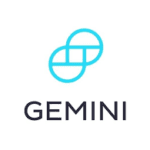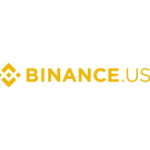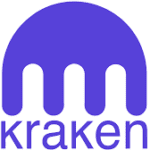I thought deciding which crypto to invest in would be the hardest part of my journey to learn crypto, but I underestimated how much research it takes to find a good crypto exchange!
Now that I’ve finally decided which cryptocurrency I’ll be investing in, I need to decide which exchange to use. Between fees, user-friendliness, and the wide array of choices out there, finding the right exchange for my investment goals is just as challenging as finding the right crypto to invest in.
In this post, I’ll go over the six options I’m currently considering, narrow it down to my top three choices, and also go over some tips for researching crypto exchanges.
How I research crypto exchanges
Maker and taker fees
A maker and taker fee structure is based on one’s role in the crypto market. Makers are the investors who set buy and sell orders based on certain limits, opposed to simply buying or selling immediately. When the market meets those limits, the order is executed automatically. Makers are responsible for putting liquidity in the market, which means exchanges give them lower fees to incentivize them. Takers, on the other hand, take liquidity out of the market by buying or selling immediately at whatever price the cryptocurrency is currently at. They usually end up paying higher trading fees.Spread fees
An alternative structure to maker/taker fees is spread fees. A spread fee is a fee charged on the difference between the price you bought the crypto at, and the price you sold it for. This is usually charged as a percentage, and it varies based on the crypto exchange as well as what crypto is being traded.Withdrawal and deposit fees
Withdrawal fees charge you if you remove your crypto from the exchange into your own wallet or another exchange. Deposit fees are usually rare since most exchanges want to incentivize their users to put money into their accounts.Minimum account fees
Minimum account fees are charged if you don’t maintain a minimum balance of crypto in your account. The amount the balance needs to be to avoid the fee will depend on the trading platform.Inactivity fees
Inactivity fees occur when a user hasn’t used their account to sell or buy crypto in a certain amount of time. This amount of time is determined by the exchange.
Which crypto exchanges are the most popular in the U.S.?
Exchange |
Trading Fees(other fees may apply) |
Account Minimums |
Current promotions(for new account holders) |
Site/App Usability |
Customer service |
| Gemini | 0.5% to 3.99% | $0 | $20 BTC for trading at least $100 within 30 days | Apps for iOS and Android with the same functionality as website | Email and chat |
| Coinbase | 0.5% to 4.5% | $2 | $5 BTC for verifying your identity | Apps for iOS and Android with the same functionality as website; beginner-friendly interface | Email, phone, and FAQ |
| Binance.US | 0.1% (based on 30-day trade volume) | $10 | None at the moment | Not available in all 50 states; the iOS app has better reviews than the Android app; some have found the website hard to navigate | Email only; some users complain of slow response time |
| Kraken | Instant Buy: 0.9% fee for stablecoins, 1.5% fee for other cryptos. Kraken Pro: 0.16% maker, 0.26% taker | $10 (but depends on which crypto) | None at the moment | Easy to navigate the website; iOS and Android apps are highly rated for both Kraken and KrakenPro | Phone support from 6 am to 6 pm EST; 24-hour chat support |
| SoFi | 1.25% | $10 | $10 BTC for making your first trade of at least $10 | Beginner-friendly website and iOS and Android apps that allow for investment consolidation of crypto with other stocks | Phone, email, and chat; great response time |
Gemini
 Gemini was founded in 2015 by twins Cameron and Tyler Winklevoss. It’s one of the most popular crypto exchanges in the world and allows users to trade in over 50 different cryptocurrencies.
Gemini is a licensed exchange that complies with all US regulations, as well as regulations for many other countries around the world. This regulation can give beginners peace of mind if it’s their first time entering the crypto market.
They don’t charge any deposit fees, and they offer 10 free withdrawals per month before charging a fee. Fees for mobile and web trades are flat fees that range between $0.99 and $2.99 for orders below $200. For orders above $200, it goes to 1.49%.
Gemini was founded in 2015 by twins Cameron and Tyler Winklevoss. It’s one of the most popular crypto exchanges in the world and allows users to trade in over 50 different cryptocurrencies.
Gemini is a licensed exchange that complies with all US regulations, as well as regulations for many other countries around the world. This regulation can give beginners peace of mind if it’s their first time entering the crypto market.
They don’t charge any deposit fees, and they offer 10 free withdrawals per month before charging a fee. Fees for mobile and web trades are flat fees that range between $0.99 and $2.99 for orders below $200. For orders above $200, it goes to 1.49%.
Coinbase
 Coinbase was founded in 2012 by Brian Armstrong and Fred Ehrsam. It’s known as the largest crypto exchange in the US. based on trading volume. The trading platform offers 96 different cryptos for its users to trade, and it provides a very beginner-friendly website and mobile app.
While it may have higher fees, it makes up for this with added security, for example, with insurance for users’ cryptocurrency in the event the site is hacked. Also, Coinbase stores the majority of its assets offline in cold storage.
There are no withdrawal or deposit fees, and they have a similar fee structure for mobile and web orders as Gemini: $0.99 to $1.99 for orders below $200, and 1.49% for orders above $200. There is also a debit card fee of 3.99%
Coinbase was founded in 2012 by Brian Armstrong and Fred Ehrsam. It’s known as the largest crypto exchange in the US. based on trading volume. The trading platform offers 96 different cryptos for its users to trade, and it provides a very beginner-friendly website and mobile app.
While it may have higher fees, it makes up for this with added security, for example, with insurance for users’ cryptocurrency in the event the site is hacked. Also, Coinbase stores the majority of its assets offline in cold storage.
There are no withdrawal or deposit fees, and they have a similar fee structure for mobile and web orders as Gemini: $0.99 to $1.99 for orders below $200, and 1.49% for orders above $200. There is also a debit card fee of 3.99%
Binance.US
 Binance.US is the US-only branch of its larger parent company, Binance. The platform was launched in 2019, and since then US citizens are only able to join Binance.US, not Binance. Binance.US has the same fees as Binance, which are on average lower compared to many other exchanges.
It also offers the same easy-to-navigate interface as its parent company. However, many users have complained about the lack of crypto options compared to Binance and the fact that Binance.US isn’t available in all 50 states.
Binance.US offers maker and taker fees of 0.1%. They also charge 4.5% for debit card transfers and do not allow credit card transfers.
Binance.US is the US-only branch of its larger parent company, Binance. The platform was launched in 2019, and since then US citizens are only able to join Binance.US, not Binance. Binance.US has the same fees as Binance, which are on average lower compared to many other exchanges.
It also offers the same easy-to-navigate interface as its parent company. However, many users have complained about the lack of crypto options compared to Binance and the fact that Binance.US isn’t available in all 50 states.
Binance.US offers maker and taker fees of 0.1%. They also charge 4.5% for debit card transfers and do not allow credit card transfers.
Kraken
 Kraken was founded in 2013 by Jesse Powell and is the fourth largest crypto exchange in terms of trading volume. While it began trading in Bitcoin, it has since expanded to include over 90 different cryptocurrencies.
Kraken emphasizes security and user protection to attract big investors like banks and hedge funds, as well as encourage beginners to join the market. One way it does this is by keeping the majority of its assets offline.
Fees include 0.16% maker and 0.25% taker for Kraken Pro. Users who buy crypto with the platform’s Instant Buy option pay a fee of 1.5% for cryptos, and 0.9% for stablecoins. Wire transfers cost $5, and withdrawal fees depend on which cryptocurrency is being traded.
Kraken was founded in 2013 by Jesse Powell and is the fourth largest crypto exchange in terms of trading volume. While it began trading in Bitcoin, it has since expanded to include over 90 different cryptocurrencies.
Kraken emphasizes security and user protection to attract big investors like banks and hedge funds, as well as encourage beginners to join the market. One way it does this is by keeping the majority of its assets offline.
Fees include 0.16% maker and 0.25% taker for Kraken Pro. Users who buy crypto with the platform’s Instant Buy option pay a fee of 1.5% for cryptos, and 0.9% for stablecoins. Wire transfers cost $5, and withdrawal fees depend on which cryptocurrency is being traded.
SoFi
 SoFi is another well-known exchange, though it’s different from the other options on this list because it’s not just a crypto exchange. It was founded in 2011 by Mike Cagney, Dan Macklin, James Finnigan, and Ian Brady.
It started as a traditional stock exchange and added crypto later. Because of this, it doesn’t offer quite as many cryptos for trade as other exchanges. Currently, it only has just under 30 different cryptos.
However, it is easy to use, beginner-friendly, and allows users to consolidate all their different investments in one place. It is available in all 50 states but is not available outside of the US.
One important aspect to note is that SoFi does not allow you to send your crypto outside of the trading platform, including to external wallets. But it makes up for this with a strong emphasis on security. In terms of fees, they have a 1.25% fee on all transactions to sell or buy crypto. Also, buy and sell orders must be a minimum of $10.
SoFi is another well-known exchange, though it’s different from the other options on this list because it’s not just a crypto exchange. It was founded in 2011 by Mike Cagney, Dan Macklin, James Finnigan, and Ian Brady.
It started as a traditional stock exchange and added crypto later. Because of this, it doesn’t offer quite as many cryptos for trade as other exchanges. Currently, it only has just under 30 different cryptos.
However, it is easy to use, beginner-friendly, and allows users to consolidate all their different investments in one place. It is available in all 50 states but is not available outside of the US.
One important aspect to note is that SoFi does not allow you to send your crypto outside of the trading platform, including to external wallets. But it makes up for this with a strong emphasis on security. In terms of fees, they have a 1.25% fee on all transactions to sell or buy crypto. Also, buy and sell orders must be a minimum of $10. My top 3 crypto exchange choices so far...
Now that I’ve done all of this research, I’m starting to have a little analysis-paralysis. For now, I plan to take a step back and consider the three top crypto exchange options that seem to resonate with me and my investment goals.
Here’s a little bit more about why I shortlisted these exchanges for my top 3.
Coinbase
Coinbase is at the top of my list of considerations, mostly because I already have an account with it that I set up to try. It’s easy to navigate, and while I haven’t purchased any cryptocurrency on it yet, I’m confident that I know how to.
- Easy to sign up and buy crypto
- User-friendly and beginner-friendly app navigation
- Good reputation
- Self-regulated but with an emphasis on strong security features
- Large selection of cryptos to choose from
- Listed publicly on Nasdaq
- Higher fees
- KrakenPro app is rated higher than regular Kraken app in the iOS store
Gemini
As a beginner, I’m drawn to Gemini because places an emphasis on security. This reputation goes far in establishing trust for someone like me, who’s unfamiliar with the market and wants to be sure my investment is safe.
Kraken
Kraken is a great choice for a crypto trading platform because it also emphasizes security. The platform also has resources for newbie investors to learn more about crypto, as well as features for more advanced investors.
Which of the above options do you think I should use? Do you agree with my top three picks? Or do you have any other recommendations that I should consider? You can fill out the poll on our Twitter page to weigh in.
Will you follow along as I learn crypto?
I’m looking for help! I want you to get involved and weigh in over at Decentral Publishing’s Twitter, Instagram, Facebook, or other social media to share your thoughts with me as I consider which crypto exchange to use to buy my first crypto.
Be sure to check back next week to see what I’ve chosen based on your feedback. Then, I’ll need your help again as I learn the ropes of managing my new portfolio!
And if you’re a fellow newbie, hopefully, you will join me so we can learn more together about the world of crypto and become more confident investing in and understanding crypto together!
To follow along with my journey to learn crypto and get involved, you can follow any of Decentral Publishing’s social media pages.
Decentral Publishing: @DecentralPub
Decentral Publishing: @DecentralPub
Decentral Publishing: @DecentralPublishing
TikTok
Decentral Publishing: @DecentralPub
Decentral Publishing: Decentral Publishing
Discord
Uncensored Crypto: Uncensored Crypto
About the Author

Jennifer Jones
About Decentral Publishing
Decentral Publishing is dedicated to producing content through our blog, eBooks, and docu-series to help our readers deepen their knowledge of cryptocurrency and related topics. Do you have a fresh perspective or any other topics worth discussing? Keep the conversation going with us online at: Facebook, Twitter, Instagram, and LinkedIn.



